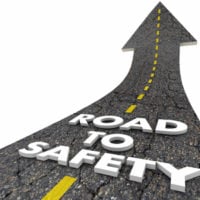Deadline: 30-Mar-22
The European Commission’s (EC) Circular and low emission value chains through digitalisation (Processes4Planet Partnership) (RIA).
Circularity is an essential part of a wider transformation of industry towards climate neutrality and long-term competitiveness. It can deliver substantial material savings throughout value chains and production processes, generate extra value and unlock economic opportunities. While circularity is in simple terms addressed by waste from one process becoming secondary materials for others, an efficient use in the value chain in order to close the loop or reuse in other industries, can be ensured only through a transparent information system. There is thus a need for designing and piloting an information system for raw materials and components in products throughout the whole value chain of process industries.
- Offers new solutions for improved use of secondary raw materials along the value chain of the own industry or in other industries;
- Offers methodologies for digital tracing and certification of secondary raw materials. This should include real-time access to information on material compositions and material quality along the whole value chain;
- Offers digital tools for integration of product passport and / or certification schemes;
- Offers open source software, open hardware design, and easy access to data, in order to facilitate access to information for the own and for other industries;
- Develop means and tools to indicate the composition and origin of recycled materials (bar code could be an option) indicating the composition and origin.
- Consider the co-design of learning resources together with local and regional educational organizations for current and future generations of employees, with the possibility of integrating them in existing curricula and modules for undergraduate level and lifelong learning programs. Learning resources should integrate the identification of new skills and should offer innovative learning-teaching methods that meet regional social needs and have a high potential for replication.
- public bodies (entities established as a public body under national law, including local, regional or national authorities) or international organizations; and
- cases where the individual requested grant amount is not more than EUR 60,000 (lowvalue grant).
- Demonstrate an increase in the waste reduction by application of digital technologies
- Demonstrate optimization of use of secondary raw materials in the value chains.
- the Member States of the European Union, including their outermost regions;
- the Overseas Countries and Territories (OCTs) linked to the Member States;
-
eligible non-EU countries:
- countries associated to Horizon Europe;
- low- and middle-income countries.
For more information, visit https://bit.ly/3iRMqxO








































